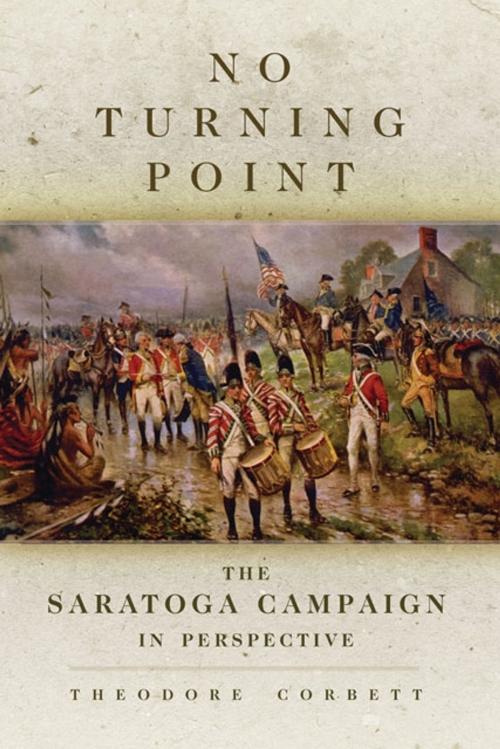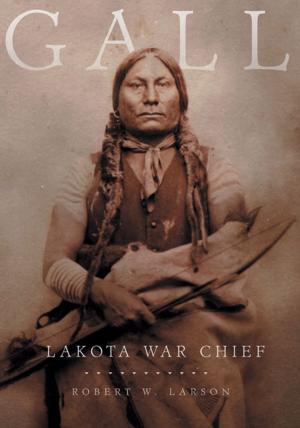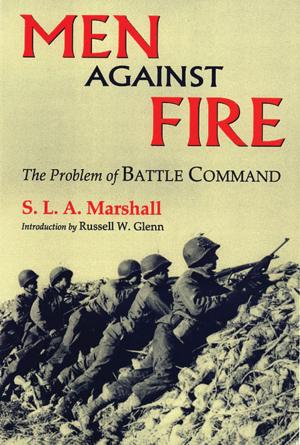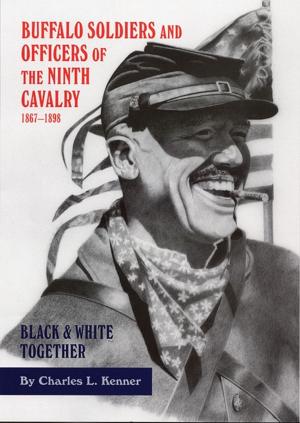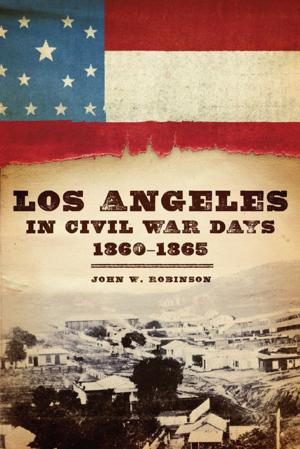No Turning Point
The Saratoga Campaign in Perspective
Nonfiction, History, Americas, United States, Revolutionary Period (1775-1800), Military, British| Author: | Theodore Corbett | ISBN: | 9780806147291 |
| Publisher: | University of Oklahoma Press | Publication: | November 5, 2014 |
| Imprint: | University of Oklahoma Press | Language: | English |
| Author: | Theodore Corbett |
| ISBN: | 9780806147291 |
| Publisher: | University of Oklahoma Press |
| Publication: | November 5, 2014 |
| Imprint: | University of Oklahoma Press |
| Language: | English |
The Battle of Saratoga in 1777 ended with British general John Burgoyne’s troops surrendering to the American rebel army commanded by General Horatio Gates. Historians have long seen Burgoyne’s defeat as a turning point in the American Revolution because it convinced France to join the war on the side of the colonies, thus ensuring American victory. But that traditional view of Saratoga overlooks the complexity of the situation on the ground. Setting the battle in its social and political context, Theodore Corbett examines Saratoga and its aftermath as part of ongoing conflicts among the settlers of the Hudson and Champlain valleys of New York, Canada, and Vermont. This long, more local view reveals that the American victory actually resolved very little.
In transcending traditional military history, Corbett examines the roles not only of enlisted Patriot and Redcoat soldiers but also of landowners, tenant farmers, townspeople, American Indians, Loyalists, and African Americans. He begins the story in the 1760s, when the first large influx of white settlers arrived in the New York and New England backcountry. Ethnic and religious strife marked relations among the colonists from the outset. Conflicting claims issued by New York and New Hampshire to the area that eventually became Vermont turned the skirmishes into a veritable civil war.
These pre-Revolution conflicts—which determined allegiances during the Revolution—were not affected by the military outcome of the Battle of Saratoga. After Burgoyne’s defeat, the British retained control of the upper Hudson-Champlain valley and mobilized Loyalists and Native allies to continue successful raids there even after the Revolution. The civil strife among the colonists continued into the 1780s, as the American victory gave way to violent strife amounting to class warfare. Corbett ends his story with conflicts over debt in Vermont, New Hampshire, and finally Massachusetts, where the sack of Stockbridge—part of Shays’s Rebellion in 1787—was the last of the civil disruptions that had roiled the landscape for the previous twenty years.
No Turning Point complicates and enriches our understanding of the difficult birth of the United States as a nation.
The Battle of Saratoga in 1777 ended with British general John Burgoyne’s troops surrendering to the American rebel army commanded by General Horatio Gates. Historians have long seen Burgoyne’s defeat as a turning point in the American Revolution because it convinced France to join the war on the side of the colonies, thus ensuring American victory. But that traditional view of Saratoga overlooks the complexity of the situation on the ground. Setting the battle in its social and political context, Theodore Corbett examines Saratoga and its aftermath as part of ongoing conflicts among the settlers of the Hudson and Champlain valleys of New York, Canada, and Vermont. This long, more local view reveals that the American victory actually resolved very little.
In transcending traditional military history, Corbett examines the roles not only of enlisted Patriot and Redcoat soldiers but also of landowners, tenant farmers, townspeople, American Indians, Loyalists, and African Americans. He begins the story in the 1760s, when the first large influx of white settlers arrived in the New York and New England backcountry. Ethnic and religious strife marked relations among the colonists from the outset. Conflicting claims issued by New York and New Hampshire to the area that eventually became Vermont turned the skirmishes into a veritable civil war.
These pre-Revolution conflicts—which determined allegiances during the Revolution—were not affected by the military outcome of the Battle of Saratoga. After Burgoyne’s defeat, the British retained control of the upper Hudson-Champlain valley and mobilized Loyalists and Native allies to continue successful raids there even after the Revolution. The civil strife among the colonists continued into the 1780s, as the American victory gave way to violent strife amounting to class warfare. Corbett ends his story with conflicts over debt in Vermont, New Hampshire, and finally Massachusetts, where the sack of Stockbridge—part of Shays’s Rebellion in 1787—was the last of the civil disruptions that had roiled the landscape for the previous twenty years.
No Turning Point complicates and enriches our understanding of the difficult birth of the United States as a nation.
